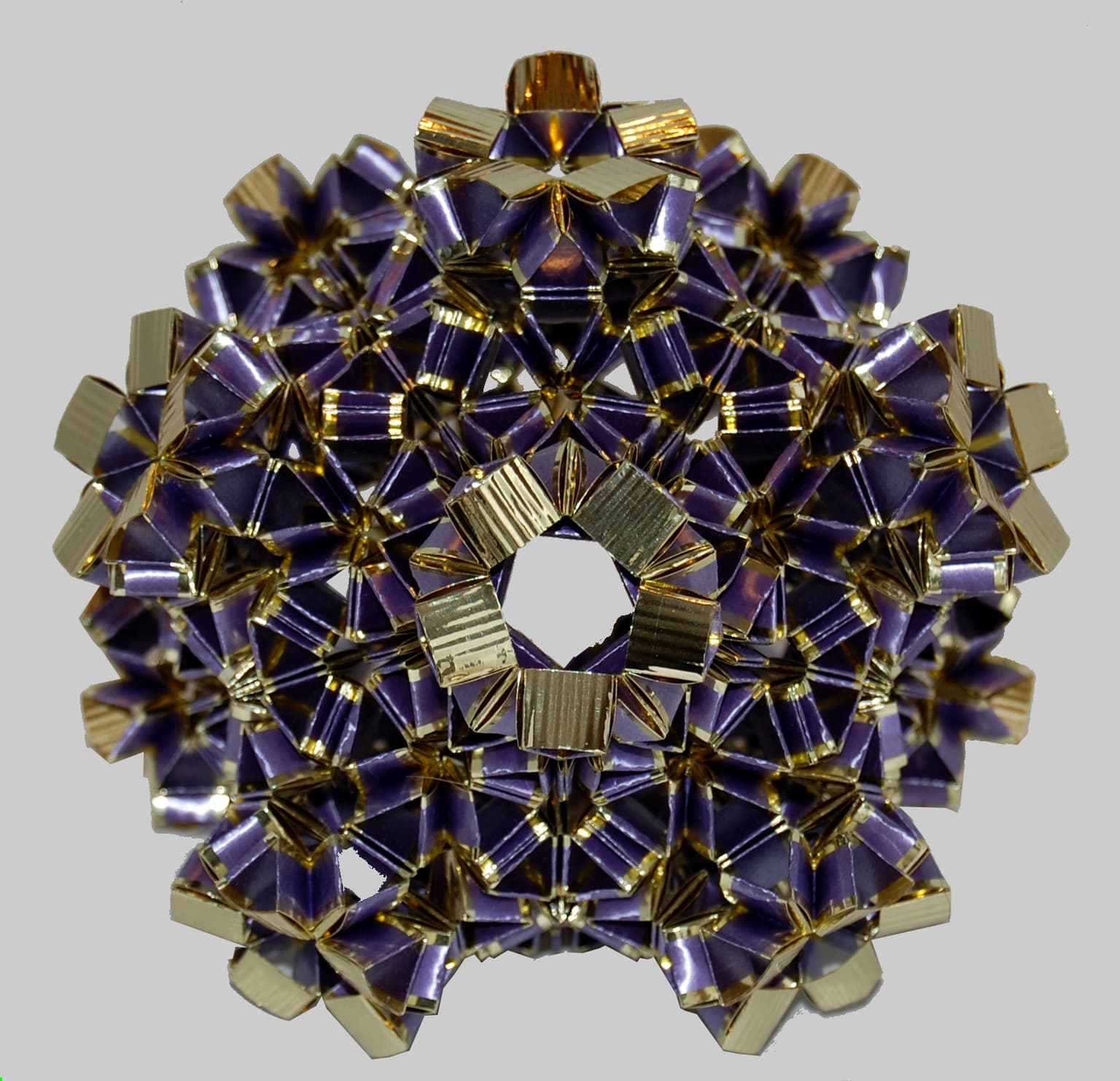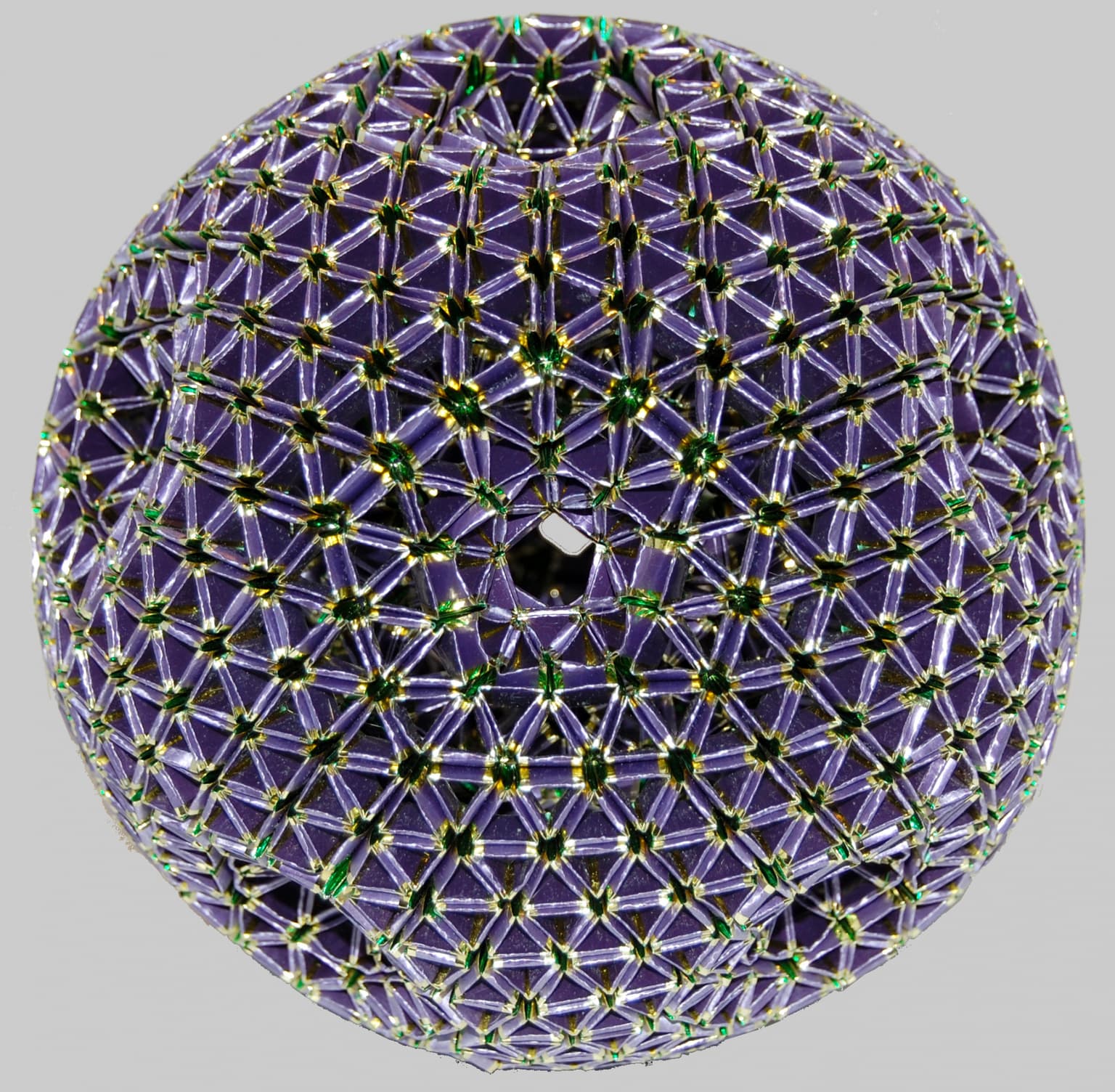2020 Joint Mathematics Meetings
Faye E Goldman
Artists
Statement
I have been doing origami since elementary school. I was drawn to modular origami by its structure and mathematical properties. This is the medium in which I work. More recently, I found the Snapology technique by H. Strobl, which allows creativity with very few rules using only strips of material. I like to use beautiful ribbon which seems to add another dimension to my work. Snapology has allowed me to dig deeply into mathematical shapes. It has provided insights into mathematical concepts and ideas. I wrote, 'Geometric Origami', published by Thunder Bay Press. It is the first book completely dedicated to the Snapology technique. The bottom line is that I make these wonderful works because they look really cool.
Artworks

Center of Dodecahedral 11 Hole Torus
10 x 10 x 10 cm
Polypropylene Ribbon
2019

Dodecahedral 11-Hole Torus
17 x 17 x 17 cm
polypropylene ribbon
2019